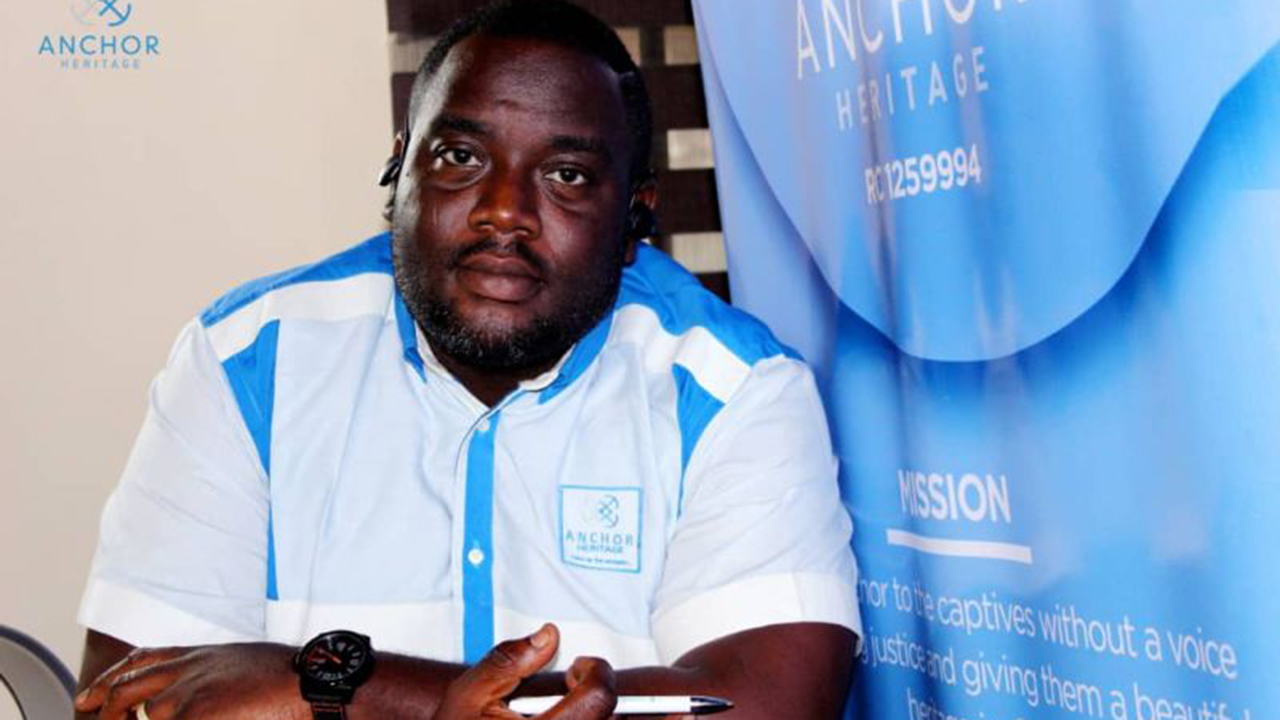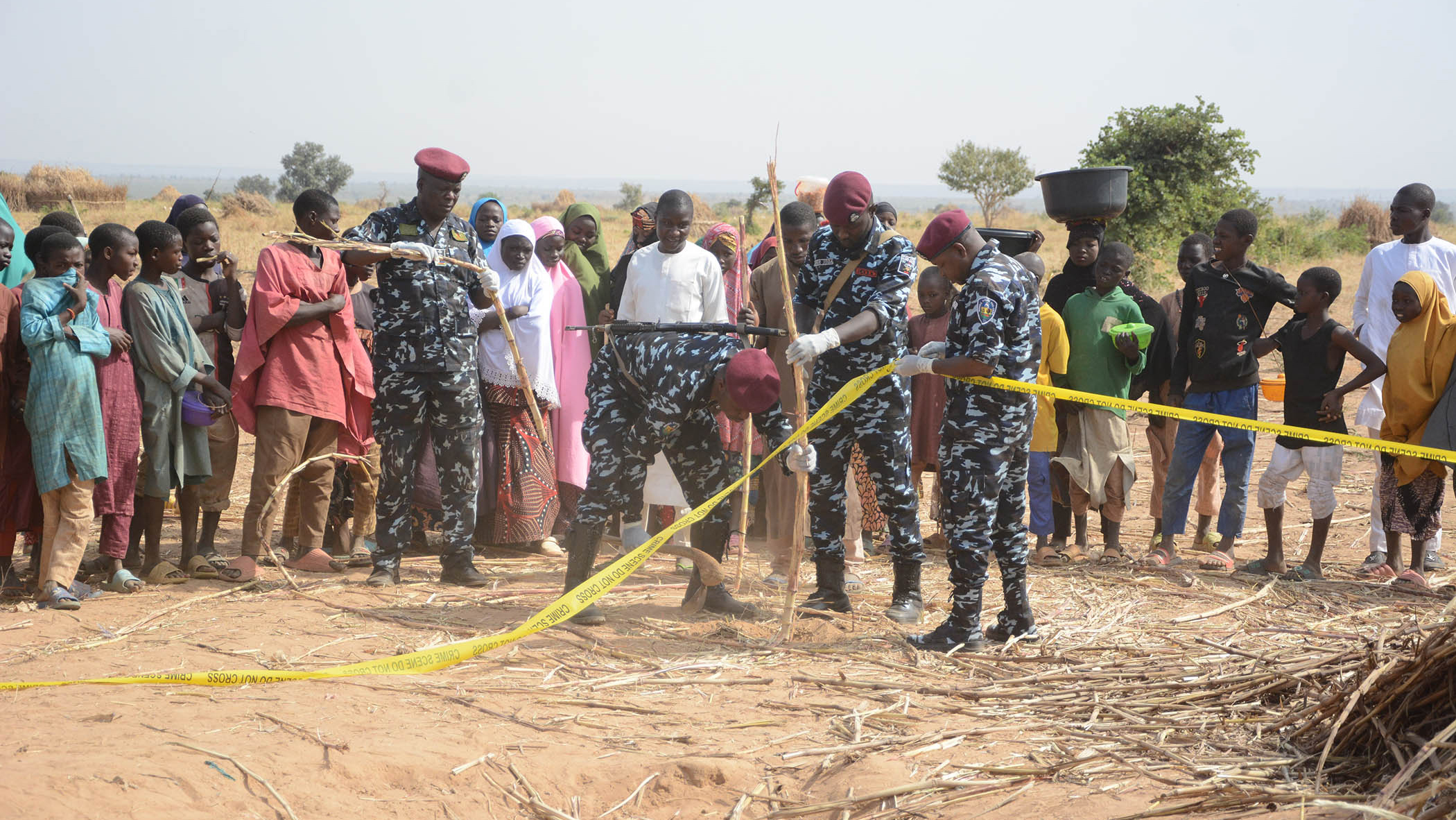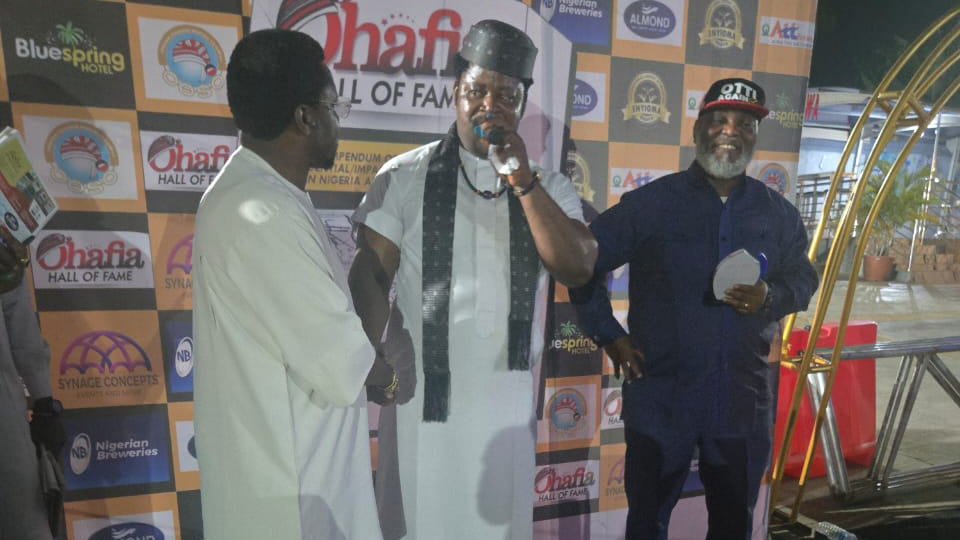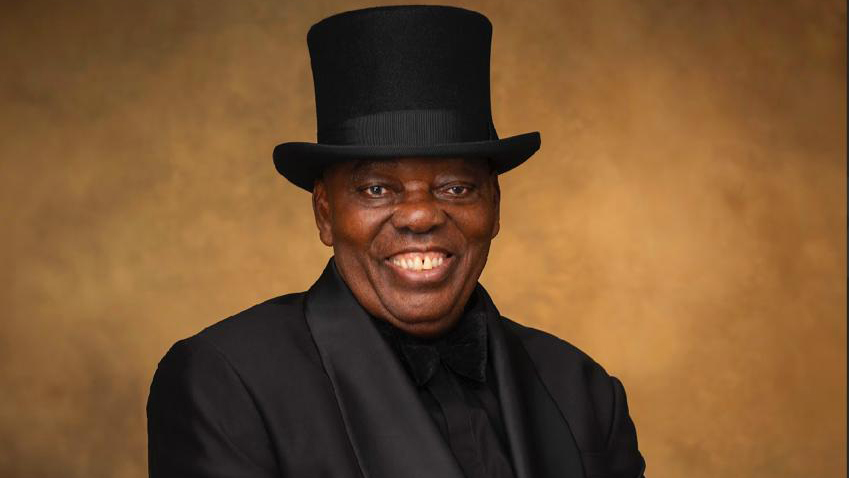
After missing death by the whiskers in an accident in 2010, the Chief Executive Officer (CEO) of Anchor Heritage Initiative (AHI), Bidemi Oladipupo, believed that God spared his life for a purpose. While pondering on that, he kept remembering his encounter with a prisoner through the Legal Aid Council of Nigeria, Makurdi Office, in 2004, whose story got his emotions. This inspired him to set up AHI in 2015 through which he has secured the release of 263 inmates from the Nigerian Correctional Service (NCS) centres and also executed some empowerment projects in the custodial centres. He spoke with ONYEDIKA AGBEDO on issues around custodial service in the country and the programmes of his organisation.
Briefly tell us about Anchor Heritage Initiative (AHI)
Anchor Heritage is a not-for-profit organisation incorporated in Nigeria in 2015 as a company limited by guarantee. But we started full operations on October 1, 2017. AHI was majorly incorporated with the mind set to change the narrative in the Nigerian Correctional Centres. As at when we were starting out, it was called the Nigerian Prisons but in 2019 the prisons were renamed as correctional centres.
So, the reason we started was to see a change in the narrative in the Nigerian prisons; to help in the welfare of inmates and then bring about a general change that will ensure that when these inmates are back to the society, they will be reintegrated properly and stigmatisation may be far away from them.
Six years on, how has the journey been?
I will say that the journey has been challenging and interesting; challenging in the sense that we didn’t have an organisation that we were modeling after, we came in with pioneering initiatives and God has just been the source of everything that we do. So, it’s been quite challenging because it’s a new terrain. It’s also challenging, because at times, to even get to our duty post (an example is going to Kirikiri Correctional Centre in the midst of trucks and containers) is a concern. Funding is also a challenge for us but the interesting part is that we have been having the result. By God’s grace, releases have been happening and we have had interesting initiatives that give us comfort and fulfillment when we see the joy on the faces of the inmates. So, it’s been interesting.
Tell us about some of the successes of your organisation?
The best way to talk about the successes so far recorded is to look at it from the Five Focal Points of AHI. The first one is legal aid; giving lawyers to the unjustly incarcerated and the indigent ones that can’t afford a lawyer. So, we are in partnership with the Legal Aid Council of Nigeria. As I speak to you, we have recorded the release of 263 inmates by the grace of God. We are still representing over 100 inmates in various courts within the South West and North Central.
The second focus of AHI is empowerment. Why do we do empowerment? We do it because we know these people will come back to the society. If they do, either as a result of being acquitted of their crime or they were even awaiting trial and found not to be complicit, and we were not paying attention to them, they will turn out to be a menace. So, we thought of empowering them while in incarceration. That was why we came up with the Teach Inmates and Beautify the Prisons project. We came up with this idea, because we observed that most of the prisons walls were not getting attention; some even had grasses growing on them and had been forgotten. We likened that to inmates that feel that they have been forgotten, because they are behind bars. So, we give them a roller as a souvenir and tell them that as they hold the roller and paint the walls and they would look beautiful again; so would their lives get better if they determine to repaint them. Under the programme, the inmates produce the paints and paint the walls of the custodial centres. We started that programme since 2019 and we have been to do that around the South West states and the North Central. Currently, we have covered 20 states and trained over 2,000 inmates and officers.
The third is that we are concerned about the welfare of these inmates. That makes us to bring in professionals, mind therapists, counsellors and pastors to rekindle the hopes of the inmates. In 2020/2021, we partnered with some organisations during the COVID-19 pandemic to provide each of the inmates with nose masks and hand sanitisers. Then, everybody was covering himself or herself and we completely forgot that the inmates would come to the courts, meet the judges, who would go back to their families and their families would meet with friends.
The fourth pillar is our after care initiative. When they leave the correctional centres, what next? Today, we have like 49 people enrolled into our after care initiative and most of them are doing very well. Some are established tailors, barbers and painters. They are there and it’s quite encouraging.
The last pillar, which we launched during our fifth year anniversary, last year, is education and technology. With that, we took the empowerment initiative to a higher scale because we realised that we were focusing more on unskilled workers. But the inflow of educated young Nigerians into the correctional centres was becoming a concern. So, we brought in the education and technology initiative since the world is technology-driven today. That was what brought about the construction of an ICT Hub in one of the largest custodial centres in Nigeria, which is Kirikiri Correctional Centre. It was commissioned on April 29, 2023, by the Minister of Interior, who was ably represented by the Permanent Secretary then, Dr. Shuaib Belgore, in the presence of the Comptroller General of the NCS. The idea was to ensure that the inmates have digital literacy education through computer classes and put their minds away from crime while in incarceration. It was also targeted at having them take advantage of the programmes of the National Open University of Nigeria (NOUN).
Many people don’t know that there are educational programmes going on in the universities but people can be educated from primary school to tertiary levels even up to the level of master’s degree while in a custodial centre. The programmes are powered by NOUN but the inmates were limited by resources like computers and Internet facility. So, by commissioning the hub, they can run their studies online and write their exams seamlessly. Digital literacy and coding classes are ongoing at the centre. Students that never knew how to switch on a computer before they got into incarceration can now do that and can do certain stuffs by themselves. The hub is the first of its kind in the Nigerian Correctional Service space.
Also, on September 1, this year, we commissioned a first of its kind bakery initiative at Agodi Correctional Centre. We took a baker there who trained them on how to bake and they started baking bread. Today, they bake, sell their produce, get their gains and continue in the business. So, we were able to teach them both baking skills and entrepreneurial skills because they are managing the bakery. This initiative is in tandem with the provision of the Section 14, sub-section 1-5 of the 2019 Act, which states that the inmates can learn, earn and make a living even while in incarceration before their exit dates and keep their savings under the Earning Scheme of the NCS.
AHI also has a 100-day Chess Initiative running in the Better Orientation Reformation Social Training Acceptable Life (BORSTAL) Institution in Abeokuta. BORSTAL is a place where young offenders are being kept. It’s under the NCS and it’s supposed to house offenders aged between 11 and 18 years.
We started the 11 Days Chess Initiative because when we visited the place, we realised that there were very young minds there. So, we thought of engaging their minds with chess. The programme started in August and will round off in the first or second week of November.
What inspired you to venture into this initiative?
My wife, who is also a director in AHI served in the Legal Aid Council of Nigeria, Makurdi Office some decades ago. I recall meeting a young guy there whose story got my emotions. That was around 2004; we got into life and I’m very sure I forgot about it.
But there was something that happened to me that caused a review of my life in 2010. That incident was an indication to me that there was more to my assignment on earth than just coming to life, marry, give birth and return.
I had an accident that was very serious but I survived it. The car I was driving went on fire after summersaulting three times because armed robbers attacked me. So, I was surprised I didn’t die. And from that point of not dying, I asked God what He wanted me to do for Him because why I didn’t die in the accident was strange. I told myself that if I didn’t die there, then there was more to me; it wasn’t just a normal life.
I mean I was comfortable by God’s grace; I was doing well but that accident caused a turnaround and I needed to ask questions. In the bid of asking questions, I was flashed back to that Makurdi experience and it was almost strange to me. So, it took me from 2010 to 2017 to conceptualise and agree that this is something I have to come into. And even after the incorporation was done in 2015, it took me another two years to really come to the conclusion that this is an assignment that needed to be run.
There have been calls for the reform of the Correctional Service for many years. Given your experiences with inmates and your understanding of the system so far, what kinds of reforms would you want to see, both immediate and long term?
The first immediate reform I want to see is a fast justice system. And it’s already in the law; it’s just that we are not yet living it. There is custodial and non-custodial sentencing. There are some of offences that the culprits done even need to go into incarceration; and there are offences that they can be quickly tried and judgment given.
Take for instance, the offence of stealing. If someone has stolen, what is the maximum sentence for the offence? Why then do you keep the offender on awaiting trial for a year or even more? There was a guy that was released through our intervention and he had spent six years plus in custody for a phone issue. The family even thought he was dead. So, we should be able to expedite justice. Let justice be quickly dispensed.
The Nigeria Police should also ensure that investigations are concluded as fast as possible. There are times when there is a defendant in Kirikiri and the IPO is on special assignment in Akure or Maiduguri and he can’t be in court. In a situation like that, it’s not the fault of the judge; it’s also not the fault of the IPO because he is on official assignment. So, we also need to balance those things so the justice system could be faster.
The work you are doing makes you a regular visitor to the Correctional Centres. Would you say the structures are as habitable as they are supposed to be?
I have always said that the correctional centre is not a place for enjoyment; it’s actually a place where freedom is taken away from the offender. Correctional centres that I saw when I started the assignment in 2017 are gradually having changed faces and I have to be sincere about that. In my sojourn of going to Kirikiri in the last six years, I have seen three new blocks come up into buildings. I have seen the figures on the boards reduce overtime. The congestion of today may not be like we had in the past; but it is not as if it can’t get better because the facility is still like one third of what it should be.






